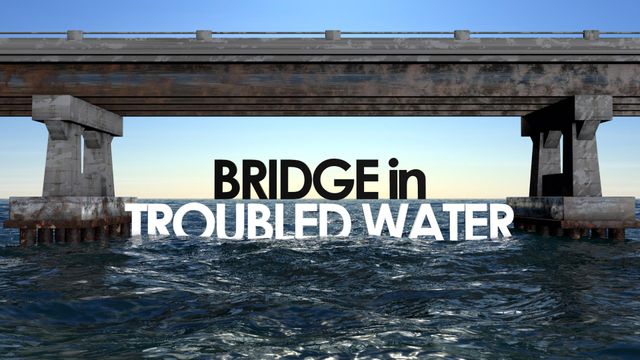Lawmakers scramble to reopen Oregon Inlet
State House and Senate lawmakers are scrambling this week for funds and fixes to reopen Oregon Inlet and dredge other inlets and ports.
Posted — UpdatedWhile House lawmakers voted to allow Dare County to raise its local sales tax by a quarter-cent to pay for dredging, Senate lawmakers are working on a fix on the state's side.
The U.S. Coast Guard declared Oregon Inlet closed on March 28 due to sand shoals that are blocking the main channel under Bonner Bridge. Under the order, no boat with a draft greater than 2 feet can come within 100 feet of the bridge. Violators could face fines of $32,000.
Dredges are on their way to the inlet for a one-time federally funded fix, but Sen. Bill Cook, R-Beaufort, said the sand will come back, and the state has to be ready to deal with it.
"Effectively, it has been closed for the past five months," Cook told the Senate Budget Committee on Tuesday morning, adding that the inlet has been closed 25 percent of the time for the past year. The main channel has been clogged since December.
The committee gave unanimous approval to Senate Bill 160, a funding bill that would take about $6 million from the Department of Commerce for the state's Shallow Draft Dredging Trust Fund, created in 2013 and generally funded through boat license fees.
The money would come from funds set aside in the 2014 budget for a Job Catalyst fund that was contingent on the passage of House Bill 1224. That bill didn't pass, so the money has been sitting idle.
Cook said $4 million of that would be earmarked for Oregon Inlet, which will provide the state match needed to reopen the inlet and keep it open for business, from charter and commercial fishing operations to cargo and boat builders.
Senior Senate Budget Chairman Harry Brown said inlet and port shoaling has been a problem for decades. Until a few years ago, the federal government was allocating $7 million to $8 million a year for dredging.
"Those dollars have pretty much gone away," said Brown, R-Onslow. "It’s really put us in a position as a state to have to deal with this issue.
"You’ve got a major boat manufacturer that’s ready to move out of North Carolina because they can’t get their boats out of the inlet any longer," he told the committee. "It is like a highway. It’s something we’ve got to fix."
The bill would allow non-state entities – private citizens or businesses – to contribute to the shallow draft fund, setting up a public-private partnership. It also would create a new "deep draft" dredging fund, analogous to the shallow draft fund, with one-time funding of $1 million. It too could receive outside money.
The proposal also gives the secretary of the Department of Environment and Natural Resources more authority to waive the required cost-sharing in cases of "navigational emergency," such as the Oregon Inlet closure, or to leverage funding from the Army Corps of Engineers, which does most of the dredging in North Carolina inlets and the ports at Wilmington and Morehead City, both of which are also experiencing shoaling problems.
One section of the bill would remove about 200 feet at the edge of Zeke's Island on Cape Fear from protected status as part of a coastal reserve. Sponsors said the move is needed to ease management of the channels around Southport.
Meanwhile, House lawmakers gave final approval Wednesday to House Bill 388, a proposal by Rep. Paul Tine, U-Dare, to allow the county to raise its local sales tax by a quarter-cent without a voter referendum.
Tine said the increase was requested by the Dare County Board of Commissioners. It's expected to raise about $4 million a year, which would be used only for dredging expenses and would be repealed as soon as the Bonner Bridge is replaced.
The bill passed its final House vote Wednesday afternoon on a vote of 112-4. It now goes to the Senate.
• Credits
Copyright 2024 by Capitol Broadcasting Company. All rights reserved. This material may not be published, broadcast, rewritten or redistributed.






